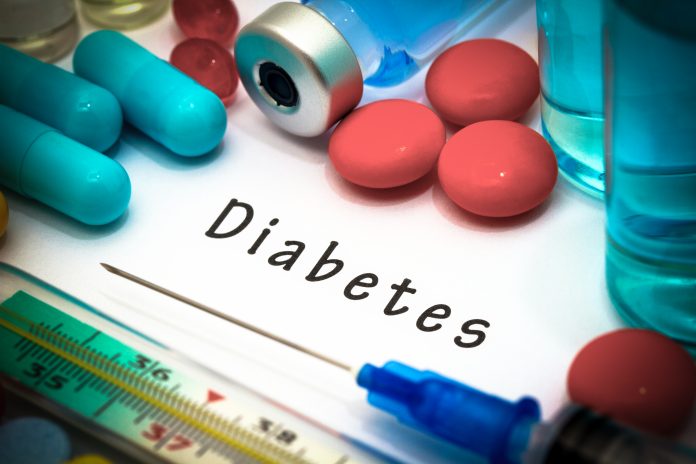People achieving and maintaining weight loss to manage their type 2 diabetes can also effectively control their high blood pressure and stop or cut down on their anti-hypertensive medication, according to new research.
A weight management program, developed by researchers at the Universities of Glasgow and Newcastle for the Diabetes UK-funded DIabetes REmission Clinical Trial (DIRECT), has proved effective at lowering blood pressure and reducing the need for anti-hypertensive medications, as well as bringing remission of type 2 diabetes.
The program involves an initial 12 weeks on a nutritionally complete formula diet (low calorie soups and shakes) which will induce weight loss of over 15kg (over two stones) if followed fully. Diabetes and blood pressure drugs were stopped at the start, and only re-started if blood sugar or blood pressure rose.
The weight loss phase is followed by support to choose foods and eat wisely for weight loss maintenance. Maintaining the 15kg weight loss allowed eight out of 10 people to become free from type 2 diabetes, without the need for diabetes medications for at least two years.
This study, published in the journal Diabetologia (the journal of the European Association for the Study of Diabetes [EASD]) looked at 143 people who started the diet program, with more than half (78 people) on tablets for high blood pressure at the start (and 44 on two or more drugs). The researchers found that, overall, average blood pressure fell steadily as people lost weight. And blood pressure remained lower after the formula diet period finished, and then at 12 and at 24 months.
For those not previously treated for high blood pressure, blood pressures fell sharply from week one. For those who had stopped their blood pressure tablets, blood pressure still fell, although more slowly. Just over a quarter (28 per cent) needed to reintroduce a blood pressure tablet during the formula diet period. However, researchers also found that the same proportion of participants (28 per cent) were able to remain off their medications for at least two years.
“We wanted to evaluate the safety and efficacy of withdrawing blood pressure medication when beginning our specially-designed weight-loss program for type 2 diabetes, and we are really pleased with the results,” says Professor Mike Lean, from the University of Glasgow.
“Our study shows that, in addition to possible remission from type 2 diabetes, there are other very important health benefits, as weight loss is a very effective treatment for hypertension and its associated serious health risks.
“Currently, over half of all the 4.5 million people with type 2 diabetes in the UK also require tablets for hypertension, to reduce serious vascular complications. Being overweight is the main cause, and losing weight can bring a remission from hypertension for many, as well as a remission of diabetes. Withdrawing blood pressure medications is safe, provided people lost weight and blood pressure was checked regularly, in case tablets needed to be reintroduced”.
“Guidelines encourage doctors to start tablets but there have been few demonstrations of how tablets can be stopped,” says Professor Roy Taylor, from Newcastle University.
“My patients, like so many, do not like swallowing multiple tablets, and this study is important as we can now reassure them that stopping blood pressure tablets is not only safe but also good for their health. We’ve shown that when substantial weight loss is achieved and maintained, patients can effectively manage both their blood pressure and type 2 diabetes without drugs.”









